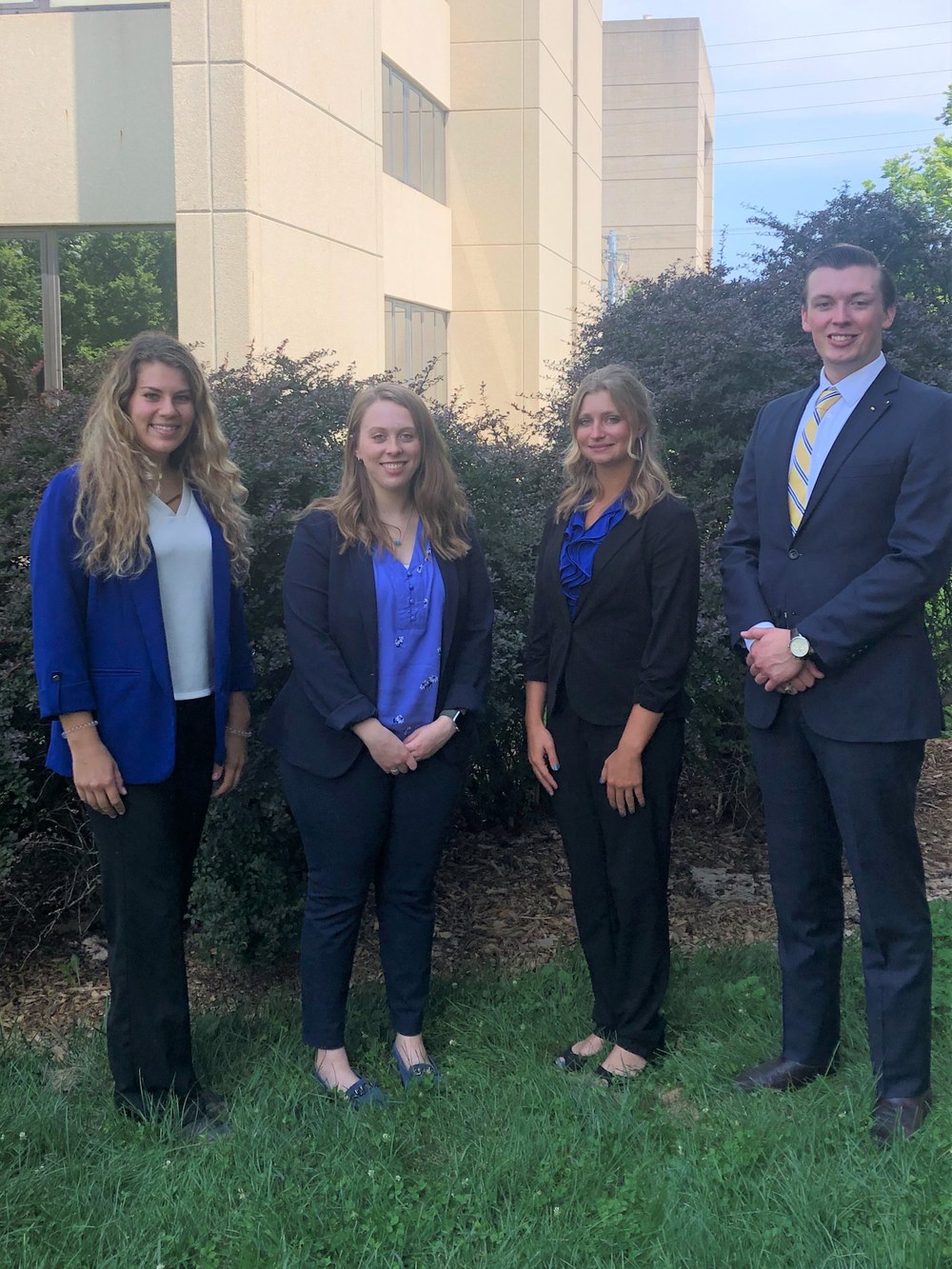Posted: August 23, 2021
A team of undergraduates from Penn State University’s Block and Bridle and Dairy Science Clubs was named Reserve National Champions in the American Society of Animal Science’s (ASAS) Academic Quadrathlon competition, held July 17-18 as part of the 2021 ASAS Annual Meeting & Trade Show in Louisville, KY.

Quadrathlon Competitors, from left: Heidi Barkley, Sydney Jewell, Elizabeth Gross and George DeMers.
A team of undergraduates from Penn State University’s Block and Bridle and Dairy Science Clubs was named Reserve National Champions in the American Society of Animal Science’s (ASAS) Academic Quadrathlon competition, held July 17-18 as part of the 2021 ASAS Annual Meeting & Trade Show in Louisville, KY.
Penn State placed first in the oral presentation and second in both the practicum and the written exam, with the quiz bowl competition ending in a tie. One quiz bowl question resulted in a sudden death scenario and Penn State finished second. They had won the opportunity to represent the northeast by placing first at the American Dairy Science Association Northeast Student Affiliate contest held virtually in Rhode Island in February.
Team members were: Heidi Barkley, Manns Choice, PA; George DeMers, York, PA; Elizabeth Gross, Pottsville, PA; and Sydney Jewell, Spencer NY. They were accompanied by Ben Williamson, Instructor of Animal Science in the Department of Animal Science.
Dr. Adele Turzillo, Head of the Department of Animal Science, said, “I congratulate the students who represented Penn State so well at this national competition. The Academic Quadrathlon offers a tremendous challenge in demonstrating the overall body of knowledge, and the success of the Penn State team speaks highly of the outstanding preparation they received.”
Teams from Iowa State and Texas A&M also competed in four events: lab practicum, written exam, oral presentation, and quiz bowl. The competition is designed to be a comprehensive academic overview of the animal sciences, with teams of four working together in each of the four segments.
The written exam covered the comprehensive body of work students learned in their collegiate career including genetics, physiology, reproduction, nutrition, animal products, and animal management. Teams had one hour to complete the 41-page exam.
In the laboratory practicum, team members demonstrated their ability to perform physical skills, working at each station for 15 minutes as an entire team. Each of the eight individual activities had a different emphasis involving a species such as beef or swine, or a disciplinary area such as nutrition or meats.
For the group oral presentation, teams were assigned a current topic related to animal agriculture and had one hour to prepare a 12-minute presentation designed to educate attendees in the audience.
The quiz bowl portion of the contest contained wide-ranging questions about all domestic animals, livestock and companion animals, as well as questions on nutrition, genetics, reproduction, meat science/muscle biology, physiology and lactation. The competition was organized as a double elimination tournament.

